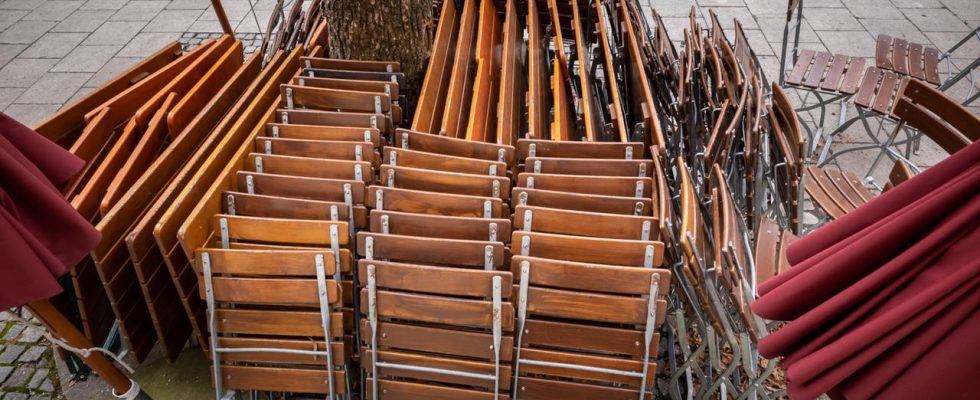Restaurants, sports facilities and hotels had to close during the second Corona wave in autumn 2020. This was provided for in a “general clause” in the Infection Protection Act. The Federal Administrative Court has now confirmed the legality of this clause.
The corona measures of the second wave of the pandemic in autumn 2020 were lawful. As the Federal Administrative Court in Leipzig finally decided, the federal states were allowed to base the closures of restaurants, hotels and sports facilities on the version of the Infection Protection Act in force at the time. This question had been hotly debated among lawyers.
With the decision, the Federal Administrative Court overturned two different judgments of the Higher Administrative Court (OVG) Saarbrücken and referred them back for retrial. The OVG had argued that the second wave of the pandemic was already foreseeable in the summer of 2020 and that the federal government should therefore have acted earlier. The Corona Protection Ordinance from October 2020, on the basis of which restaurants were also closed, was therefore ineffective. Two restaurateurs had complained.
Was the “general clause” sufficient as a basis?
From a legal point of view, the question was whether measures such as the closure of restaurants could be justified with the “general clause” in the Infection Protection Act at the time. In October 2020, this clause generally allowed protective measures against contagious diseases.
The Infection Protection Act was only changed in November 2020 and has since defined specific corona protection measures such as the obligation to wear masks, contact restrictions and the closing of hotels and restaurants if an “epidemic situation of national importance” is determined.
The federal administrative judges in Leipzig have now decided that the “general clause” was sufficient as the legal basis for the closure of restaurants. The pandemic developed dynamically, so there was some leeway.
Plaintiff from Saxony is partly right
The federal judges ruled on another case in Saxony. The plaintiff, who operates a leisure and hotel center in Chemnitz, was right on a single point: in its Corona Protection Ordinance of autumn 2020, Saxony had allowed doing sports alone or in pairs in amateur sports facilities, but not in fitness studios. The judges ruled that this was a violation of the principle of equality.
However, the court confirmed the remaining rules of the Saxon ordinance – the closing of restaurants and a ban on tourist overnight stays.
File numbers for the Saarland cases: BVerwG 3 CN 4.22 and 3 CN 5.22
File number for the case from Saxony: BVerwG 3 CN 6.22

